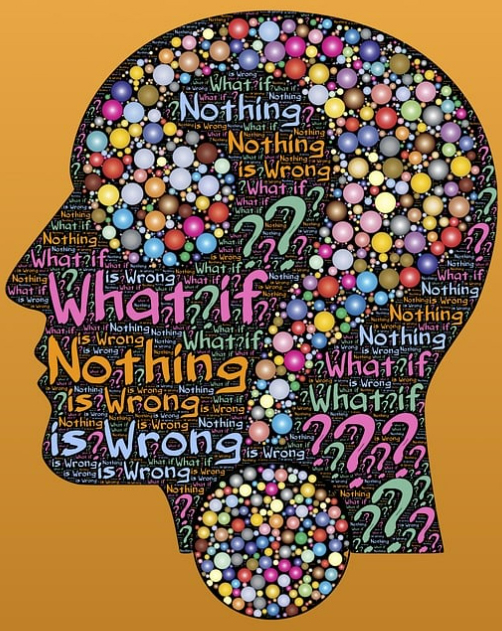

Anxiety is like an overzealous security system, your amygdala constantly sounds the alarm, flooding your body with adrenaline and cortisol, even when there’s no real danger. It’s your brain’s way of trying to protect you, but sometimes, it mistakes everyday stress for a life-threatening emergency. Anxiety can feel like an uninvited guest in your mind, one that whispers worries about the future when all you want is to enjoy the present. In today’s fast-paced society, where deadlines loom, notifications never stop, and uncertainty feels like the norm, anxiety disorders have become increasingly common. But here’s the good news: you’re not alone, and there are effective ways to take back control.
With the world moving at lightning speed, it’s no surprise that many people feel overwhelmed. Whether it’s career pressures, financial stress, or global events, excessive worry can build up, affecting mental health and making everyday life a struggle.
According to the World Health Organization (WHO), anxiety disorders affect approximately 301 million people worldwide, making them one of the most prevalent mental health conditions The COVID-19 pandemic only intensified this issue, with a JAMA Psychiatry study reporting a sharp increase in generalized anxiety disorder (GAD) due to uncertainty and social isolation.
Factors such as social media, work-related stress, and fear of the unknown contribute to skyrocketing anxiety levels. It’s no surprise that watching the news, and other peoples lives on social media leads to a fear of missing out, or comparisons. Learning how to manage anxiety with the right coping strategies is the key to regaining peace of mind.
If your anxiety symptoms are making life difficult, incorporating stress management techniques can help. Here are some evidence-based strategies to keep anxiety in check:
Imagine trying to watch a sunset, but your mind keeps pulling you into tomorrow’s to-do list. Mindfulness is the practice of gently bringing your focus back to the present. A 2018 study in the journal Psychiatry Research found that mindfulness meditation helps reduce anxiety by calming activity in the amygdala—the brain’s fear center (Guendelman et al., 2018). Just 10 minutes a day of mindfulness can boost emotional regulation and decrease stress.
If you would like to practice guided mindfulness exercises, visit Mindful.org for some engaging exercises.
When anxiety pulls you into a spiral of overthinking, grounding techniques can anchor you back in reality. Try the 5-4-3-2-1 method: Through this method, you name:
By engaging your senses, this exercise shifts your focus away from anxious thoughts and reconnects you with the present moment.
Think of your breath as a remote control for your nervous system. Deep breathing exercises can signal your body to relax. Controlled breathing, like the 4-7-8 technique, lowers cortisol (the stress hormone) and activates the body’s natural relaxation response.
Try this simple exercise:
Practicing this method daily helps regulate the nervous system, lower heart rate, and promote relaxation. Learn more about breathing techniques at the American Institute of Stress.
Your mind is a powerful tool, and visualization can be an effective way to reduce anxiety symptoms. guided imagery helps decrease stress and promote relaxation.
Close your eyes and imagine yourself in a peaceful setting- maybe a quiet forest, a gentle ocean, or a cozy cabin. Picture the sights, sounds, and sensations of this place. How do you feel? Much calmer, and relaxed! Engaging in guided imagery can help counteract negative thoughts and bring a sense of tranquility.
While self-help techniques can be effective, sometimes professional therapy for anxiety is necessary. If anxiety is disrupting daily life, causing panic attacks, or making it difficult to function, an experienced mental health professional can provide guidance and treatment.
At Journey Counselling, we offer evidence-based treatments such as cognitive behavioral therapy (CBT), stress counseling, and personalized mental health support. CBT is one of the most effective treatments for generalized anxiety disorder, with lasting improvements in symptom reduction. Our experienced psychologists can help you regain confidence and control over your mental health.
Anxiety doesn’t have to control your life. If you or a loved one is struggling with anxiety, don’t hesitate to seek support. Contact Journey Counselling today at 403-619-5354 to schedule an appointment and take the first step toward a calmer, healthier mind.
Alberta Mental Health Help Line (1-877-266-4357)
Distress Centre Calgary: Call 403-266-HELP (4357) or visit https://www.distresscentre.com/
Kids Help Phone: Call 1-800-668-6868 or text CONNECT to 686868